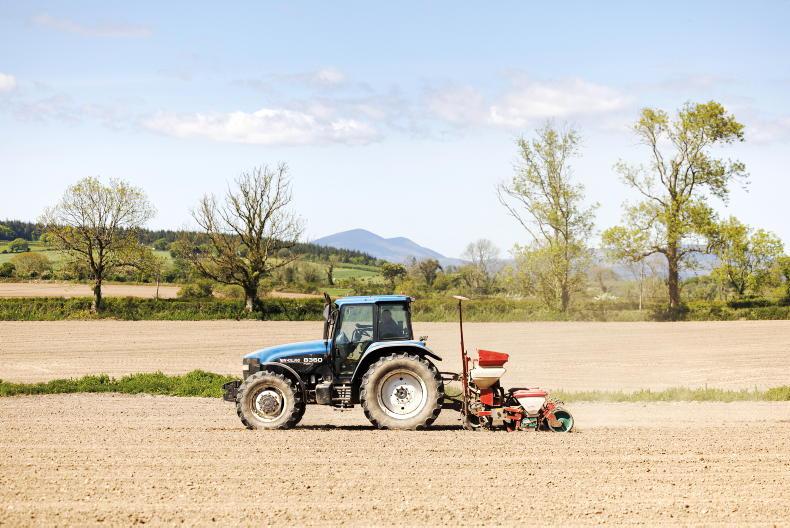I got a note from my accountant that warned me that part-time farmers could lose out if they don’t get the farm transferred into their name by 31 December 2014. The figures they talked about were quite large and seemed to deal with agricultural relief. All the talk in the budget has made me start to look into handing over the land to my son. He helps me out and is working off farm. He hopes to come back to farming full-time, in time. He’s got a green cert so he should qualify for the young farmer scheme. Should I be worried and try to transfer the farm to my son before the end of December?
David
In the letter, David had enclosed the flyer that he had received through the post. While I wouldn’t mention names, it was a clear case of trying to drum up business. Nothing was factually wrong with what was said and the case study used where the son would have to pay €1,000s extra in tax was also accurate.
The problem was that it took one slant, did not give the farmer the best advice and played on the uncertainty that is currently out there. The confusion has come from one of the new measures introduces as part of the agri tax review. The attempt is to target agricultural relief in order to stop wealthy people (not farmers) just buying land to pass on to their children, specifically to get the 90% relief on the value of the transfer. To do this, a definition of what is an active farmer was included.
When the Finance Bill was published, it quite clearly stated that to qualify the person has to devote no less than 50% of their normal working time farming the agricultural property on a commercial basis.
This led to confusion, with some saying that if a person worked for 40 hours off-farm it would mean that they would have to work 40 hours on-farm to qualify for the relief. There wouldn’t be enough hours in the week. This would make it difficult to prove, ruling out many commercial part-time farmer who needed to work off-farm to make ends meet.
The Finance Bill debate has concluded and while we wait for the exact wording, more important will be a guidance note issued by Revenue on how it will interpret that wording.
Extensive lobbying has gone on and also there have been assurances that no commercial part-time farmer will lose out.
The key will be that they interpret the normal working week as 40 hours, leaving a farmer to work 20 hours on the farm.
Back to David’s situation. The fact that his son has a green cert means that he does not have to worry about the time criteria. This is because of an additional line that was proposed by the agri tax review, but initially left out of the Finance Bill. It says that if a person has agricultural qualifications they do not have to work around the time criteria. It also gives people up to four years to get a qualification to comply. So your son would qualify.
To complete the picture, it is important to point out that people who get land and don’t have qualifications or fulfil the time criteria can lease it out for six years or more to qualify for agricultural relief.
Even after that, anyone is allowed to look for business relief, which also potentially reduces the value of assets by 90%.
Transferring the farm to his son is a major decision and one that David should not be forced into. By all means, he should go and talk to his accountant, but he has to make sure the accountant spells out all the options and implications. If necessary, he should get a second opinion. In my view, the first thing to do now is for David to talk to his son, to see what he would like to do. You have to plan ahead for what you need to live on, as many find the old-age pension alone does not go far enough.
Finally, David mentions the young farmer scheme. That is part of the new CAP reforms and will allow his son to get a 25% top-up of the national average entitlement value for five years.
More important is the fact that new entitlements will be created next year.
Whatever decision David makes, he has to ensure he’s happy with it. If he decides to transfer over the farm, the right to establish the entitlements will pass to his son as he steps into David’s shoes.
The key issue here is that land has to be transferred. If David decides to lease the land to his son instead, he’ll have to do two things.
Firstly, sign a private contract clause allowing his son to establish the entitlements for David in 2015. Secondly, he must be deemed an active farmer in 2015.
To do this, David must send in an application with at least one hectare. If that’s not done, he could lose any entitlements. It is complicated, but achievable.
In brief
• There are changes in transferring land in the budget which will impact some farmers.• Make sure you look at all the options.• Think fully of the income you will need if you stop farming.• Look around for advice. Make sure professional has enough knowledge.• Don’t be rushed into making a major decision due to perceived deadlines.
I got a note from my accountant that warned me that part-time farmers could lose out if they don’t get the farm transferred into their name by 31 December 2014. The figures they talked about were quite large and seemed to deal with agricultural relief. All the talk in the budget has made me start to look into handing over the land to my son. He helps me out and is working off farm. He hopes to come back to farming full-time, in time. He’s got a green cert so he should qualify for the young farmer scheme. Should I be worried and try to transfer the farm to my son before the end of December?
David
In the letter, David had enclosed the flyer that he had received through the post. While I wouldn’t mention names, it was a clear case of trying to drum up business. Nothing was factually wrong with what was said and the case study used where the son would have to pay €1,000s extra in tax was also accurate.
The problem was that it took one slant, did not give the farmer the best advice and played on the uncertainty that is currently out there. The confusion has come from one of the new measures introduces as part of the agri tax review. The attempt is to target agricultural relief in order to stop wealthy people (not farmers) just buying land to pass on to their children, specifically to get the 90% relief on the value of the transfer. To do this, a definition of what is an active farmer was included.
When the Finance Bill was published, it quite clearly stated that to qualify the person has to devote no less than 50% of their normal working time farming the agricultural property on a commercial basis.
This led to confusion, with some saying that if a person worked for 40 hours off-farm it would mean that they would have to work 40 hours on-farm to qualify for the relief. There wouldn’t be enough hours in the week. This would make it difficult to prove, ruling out many commercial part-time farmer who needed to work off-farm to make ends meet.
The Finance Bill debate has concluded and while we wait for the exact wording, more important will be a guidance note issued by Revenue on how it will interpret that wording.
Extensive lobbying has gone on and also there have been assurances that no commercial part-time farmer will lose out.
The key will be that they interpret the normal working week as 40 hours, leaving a farmer to work 20 hours on the farm.
Back to David’s situation. The fact that his son has a green cert means that he does not have to worry about the time criteria. This is because of an additional line that was proposed by the agri tax review, but initially left out of the Finance Bill. It says that if a person has agricultural qualifications they do not have to work around the time criteria. It also gives people up to four years to get a qualification to comply. So your son would qualify.
To complete the picture, it is important to point out that people who get land and don’t have qualifications or fulfil the time criteria can lease it out for six years or more to qualify for agricultural relief.
Even after that, anyone is allowed to look for business relief, which also potentially reduces the value of assets by 90%.
Transferring the farm to his son is a major decision and one that David should not be forced into. By all means, he should go and talk to his accountant, but he has to make sure the accountant spells out all the options and implications. If necessary, he should get a second opinion. In my view, the first thing to do now is for David to talk to his son, to see what he would like to do. You have to plan ahead for what you need to live on, as many find the old-age pension alone does not go far enough.
Finally, David mentions the young farmer scheme. That is part of the new CAP reforms and will allow his son to get a 25% top-up of the national average entitlement value for five years.
More important is the fact that new entitlements will be created next year.
Whatever decision David makes, he has to ensure he’s happy with it. If he decides to transfer over the farm, the right to establish the entitlements will pass to his son as he steps into David’s shoes.
The key issue here is that land has to be transferred. If David decides to lease the land to his son instead, he’ll have to do two things.
Firstly, sign a private contract clause allowing his son to establish the entitlements for David in 2015. Secondly, he must be deemed an active farmer in 2015.
To do this, David must send in an application with at least one hectare. If that’s not done, he could lose any entitlements. It is complicated, but achievable.
In brief
• There are changes in transferring land in the budget which will impact some farmers.• Make sure you look at all the options.• Think fully of the income you will need if you stop farming.• Look around for advice. Make sure professional has enough knowledge.• Don’t be rushed into making a major decision due to perceived deadlines. 









SHARING OPTIONS